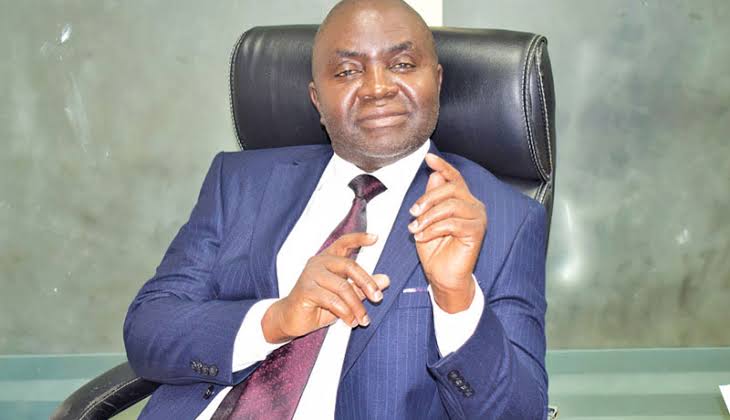Foreigners taking away maritime jobs from Nigerians, says Muda Yusuf
…Decries high foreign exchange rate for Import Duty
Maureen Aguta
The Chief Executive Officer (CEO), Center for the Promotion of Public Enterprise (CPPE), Dr Muda Yusuf, has called for effective support for a quick passage of the ‘Port Economic Regulatory Agency Bill (PERAB),’ waiting for the concurrence of the Senate Chamber of the National Assembly, saying the Nigerian port industry is in urgent need of a strong regulator to stem the tide of foreign domination of the sector.
This came as the CPPE boss has called on the National Bureau of Statistics (NBS) to improve its data collection and reporting on the maritime sector, as despite the sector’s contribution to the economy, there is no significant reporting of its contribution to the nation’s GDP by the NBS.
“I have challenged the Nigerian Bureau of Statistics. If you look at the GDP report, there is no significant reporting of maritime sector contribution to GDP. The only thing you see is water transportation. “Maritime is beyond water transportation. Sometimes they put it at 0.05 per cent contribution. Sometimes it’s even zero,” he said.
Yusuf noted that the Nigerian port industry is plagued by the activities of monopolists who have operated unchallenged over the years due to the absence of a strong regulator of the sector, saying smaller jobs in the Nigerian port industry, like freight forwarding has been dominated by the foreign monopolists robbing Nigerians of jobs and economic empowerment.
The CPPE boss spoke at the 2024 annual seminar for maritime journalists, organised by First Mediacom Network Limited in collaboration with the Nigerian Shippers’ Council (NSC) which was held recently in Lagos.
He affirmed that the current regulatory framework in the industry is weak, leaving consumers, investors and port users vulnerable to unfair practices.
His words, “When you have a sector dominated by monopolies, you don’t have much choice. You don’t even have a choice of where your container will go. So, we are at the mercy of these monopolies. What can you say to a consumer when there is competition? But there is no competition in this place. So it is only a strong regulator that can protect the consumers that can protect investors, and protect the port users. “So it’s very important that we support the Nigerian Shippers’ Council to become a very strong and effective regulator. That’s extremely very important.”
Yusuf, further canvassed for policies to support indigenous investors and protect jobs for Nigerians in the sector. He lamented that the Cabotage Act set up to protect indigenous shipping companies has not been effectively implemented as indigenous investors continue to lose their jobs due to foreign dominance.
“There has to be a deliberate policy to support our indigenous investors in the maritime sector. Jobs that can be done by our own people should be preserved for us.
“We need to save maritime sector jobs because we are losing the jobs in the maritime sector by the day. We are importing a lot. We are exporting a lot. Our indigenous people cannot be spectators in their own economy. It’s not right. Whether it’s clearing, whether it’s shipping, these jobs are being taken away. There must be a policy to protect indigenous people in each sector. It’s very important. We cannot sit by and all the jobs in maritime are being taken away. I’m not saying that we don’t need foreign investors. But they can go to areas where we don’t have capacity. We have the capacity to do clearing. We have the capacity to move things. Why must people come in from all sorts of places to clear a cargo here? It’s not acceptable,” he said.
Yusuf also faulted the high exchange rate for calculating import duties as currently being operated by the Nigeria Customs Service, saying the development has made the cost of doing business in the Nigerian ports unimaginable high.
He called on the authorities to review these policies, which according to him, have led to diversion of cargo to the ports of neigbouring countries and smuggling. “We are losing a lot of jobs because the domestic policies are tough. Sometimes the import duties are too high. Then you have this problem of the exchange rate for the clearance of cargo. “They say it’s because of the Customs Acts. But it is humans that make the law so we can review it. How can we be using N1, 600, N1, 000, sometimes up to N1, 700 to compute import duties? That’s why things are so expensive in the market today. And people have invested in the port. We are losing money because of some of these policies,” he said.
He called on the media to elevate the level of conversation and bring these issues to the front burner.


